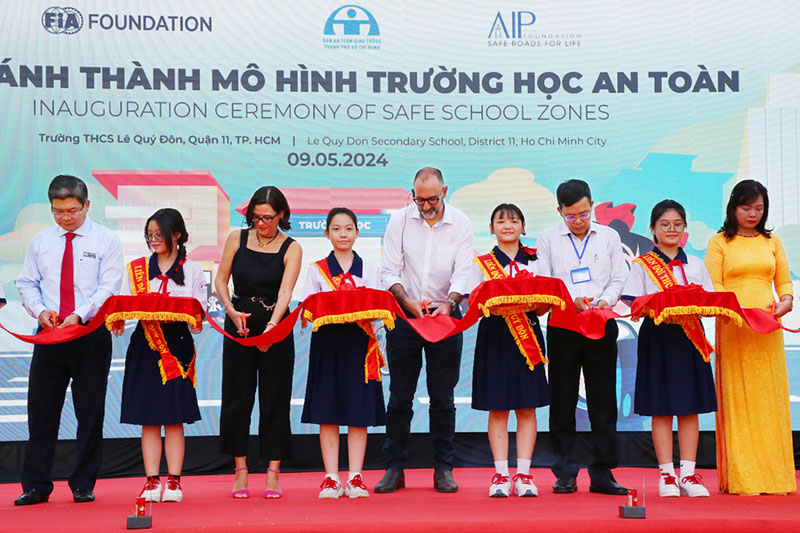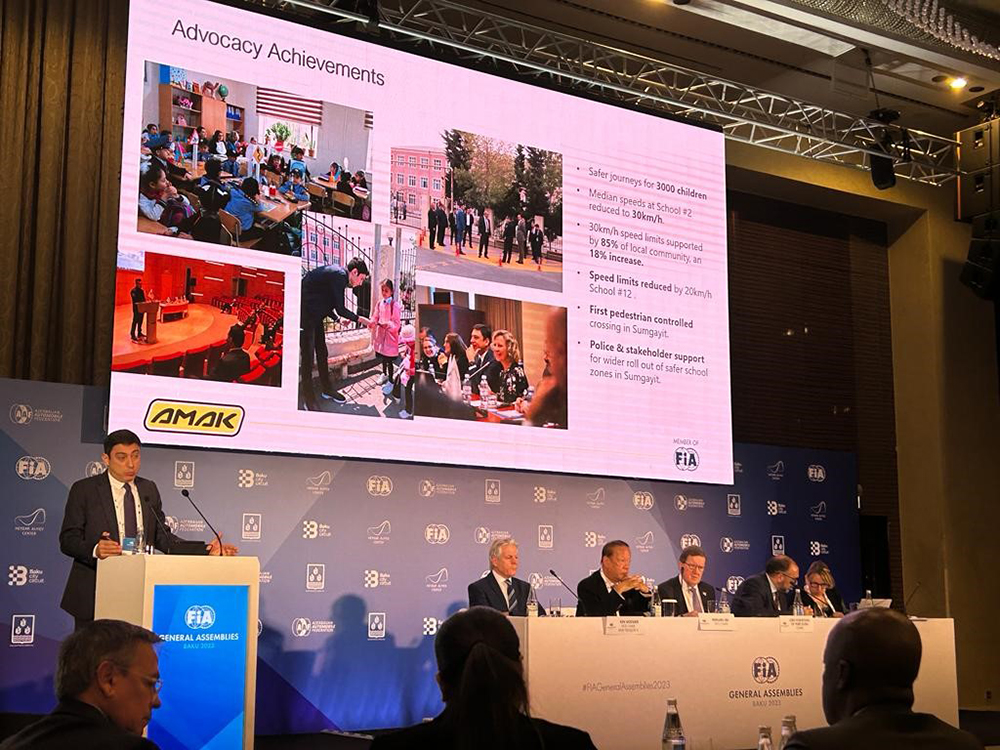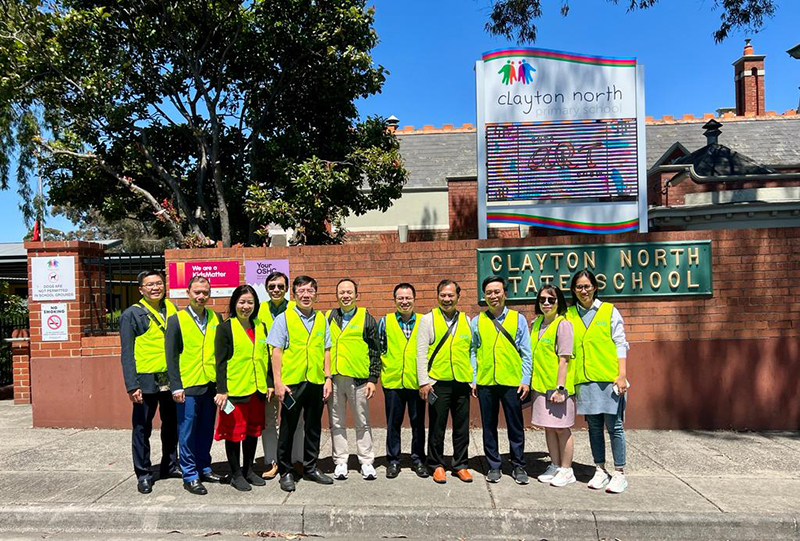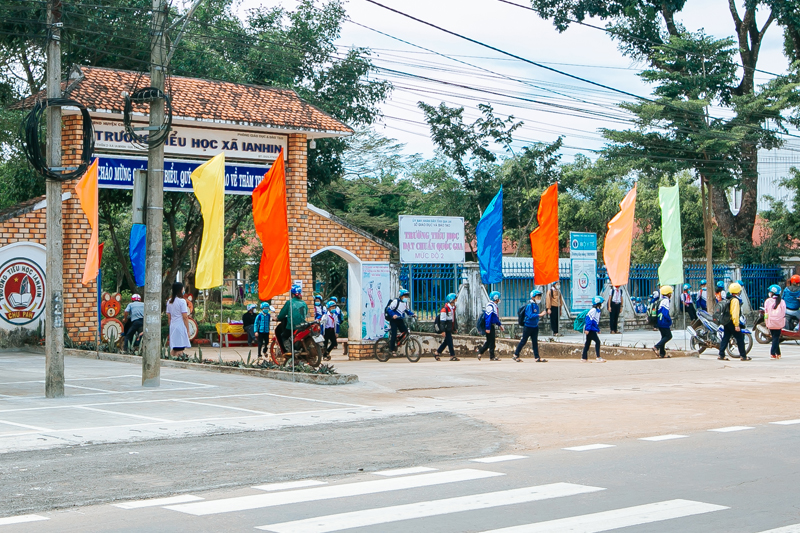Brasilia Forum on child health and mobility in cities
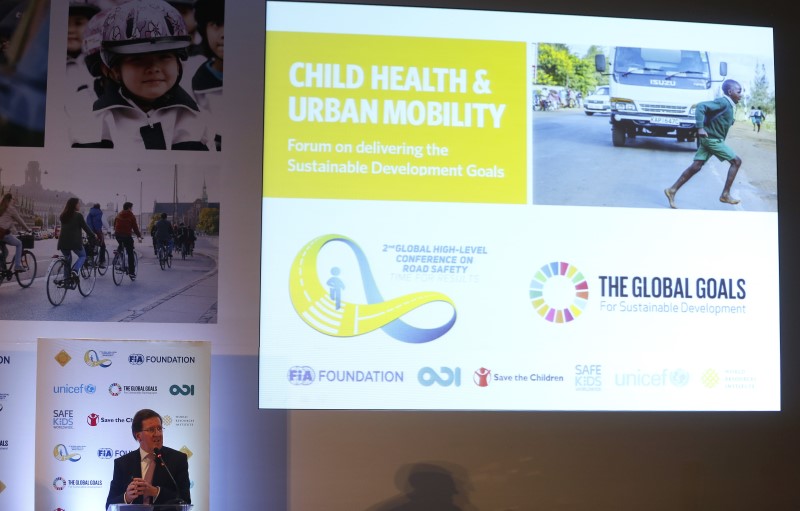
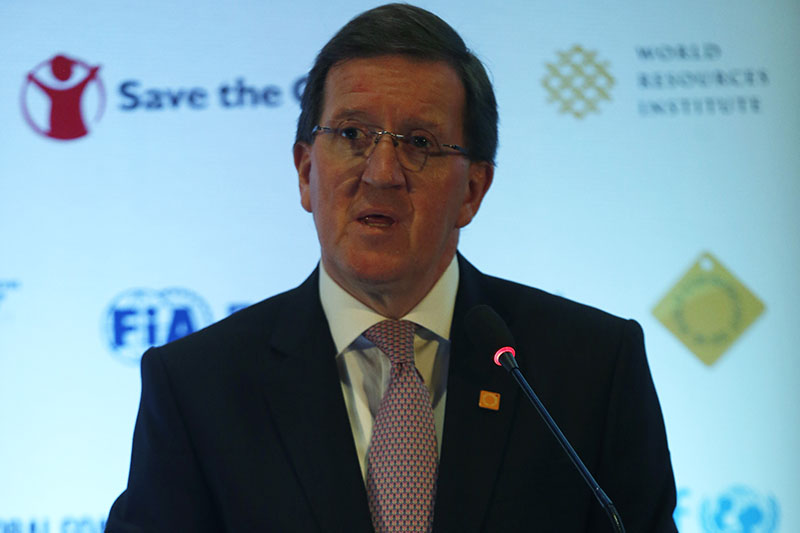
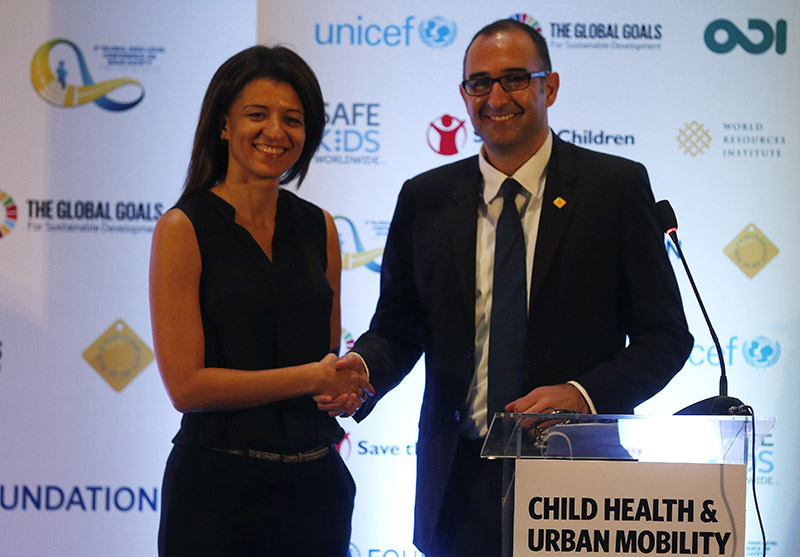
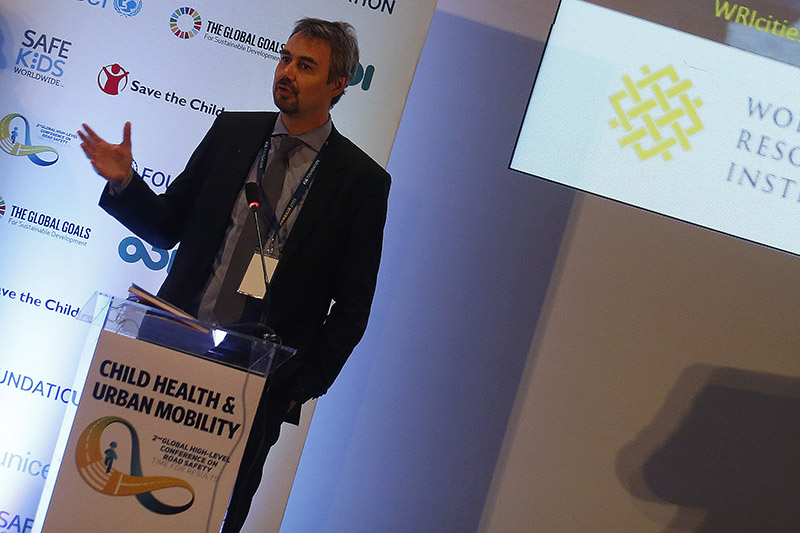


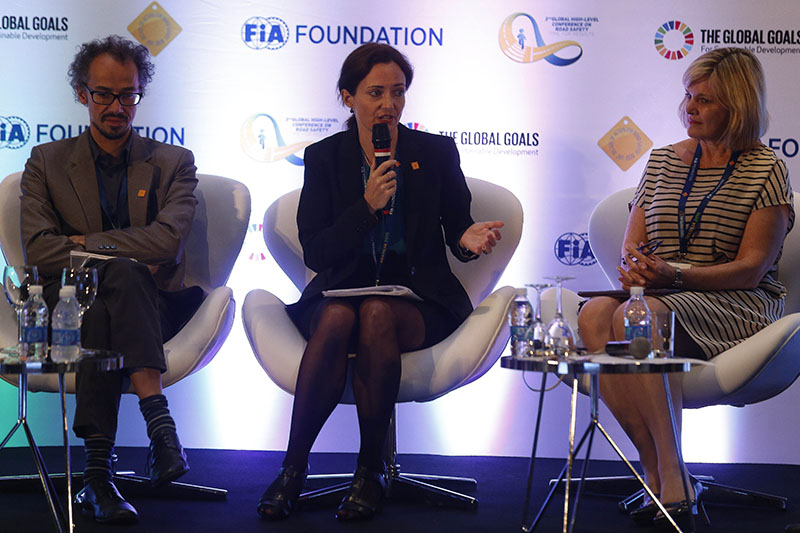
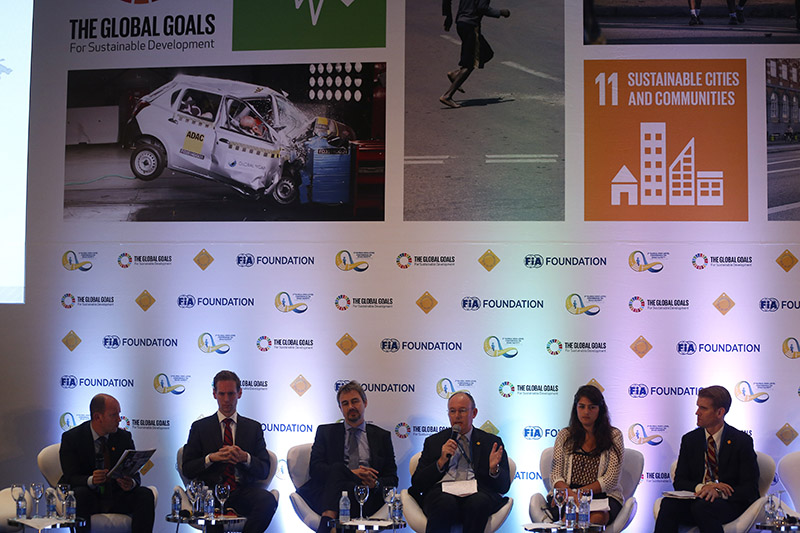
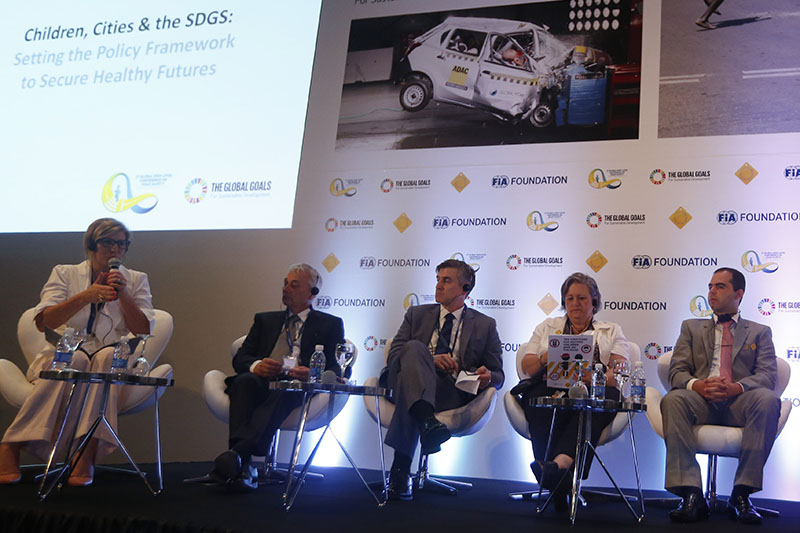
The FIA Foundation has hosted a Forum on Child Health & Urban Mobility in the run-up to the 2nd Global High Level Conference on Road Safety in Brasilia.
The Foundation’s Forum included a number of new funding commitments and partnership announcements, and heard from senior officials from the Brazilian Federal Traffic Police, the US Government and the World Bank, as well as many of the NGOs around the world leading child road traffic injury prevention efforts.
At the Forum the FIA Foundation announced a new €2 million funding pledge to UNICEF, to support global and national advocacy and capacity building for road safety by the UN agency. The FIA Foundation’s Director General, Saul Billingsley, was joined on stage by Edith Asibey, Chief, Communications & Partnerships for UNICEF Brazil, to make the announcement. In a statement, UNICEF said:
“UNICEF will receive €2 million in funding from the FIA Foundation for 2016 and 2017, which will enable UNICEF to engage with partners on the SDG road safety agenda as it relates to children and UNICEF’s mandate on the Rights of the Child. UNICEF also recognizes the importance of collaboration with the FIA Foundation and its partners to deliver this agenda. The work will contribute to the FIA Foundation’s SDG coalition on Child Health and Urban Mobility launched at the 2nd Global High Level Conference on Road Safety in Brasilia. It will also contribute to next steps as outlined in the ‘Brasilia Declaration’, and the wider global SDG agenda on road safety.”
The Foundation also announced a new partnership with the World Resources Institute. WRI Ross Center for Sustainable Cities is a world leader in promoting sustainable urban mobility and liveable cities. In 2015, with funding from Bloomberg Philanthropies, the EMBARQ mobility initiative of WRI Ross Center for Sustainable Cities published ‘Cities Safer By Design’, a global reference guide to help cities save lives from traffic fatalities through improved street design and smart urban development. This hands-on guide includes 34 different design elements to improve safety and quality of life and focuses on improving infrastructure for pedestrians, bicycling, and mass transport. For an initial two year period, the partnership will enable WRI to promote practical implementation of the ‘Cities Safer by Design’ recommendations in selected cities, including in Brazil.
Holger Dalkmann, EMBARQ Director, WRI Ross Center for Sustainable Cities said: “Cities can save lives with better urban designs. With the FIA Foundation, we will accelerate our on the ground work with cities to implement safer design principles around the world”.
The Forum heard a keynote speech from Lord Robertson of Port Ellen, the Chairman of the Commission for Global Road Safety. In his remarks, which began by remembering those killed in the Paris terrorist atrocities, Lord Robertson highlighted the changing urban landscape, rapid motorisation and the need to put a child rights agenda at the heart of a safe mobility push in cities. He said:
“Within any interpretation of child rights, our young people should have the right not to have violence inflicted on them by adults. They should have the right to go to school, or explore the neighbourhood around their home, free from road danger. They should have the right to expect that governments and city authorities will place their well-being and health above other priorities.”
Speakers at the Forum included Maria Alice Nascimento Souza, Director General of the Brazilian Federal Highway Police; Mitch Wolfe, US Deputy Assistant Secretary for Health & Human Services; Dr Margie Peden, Coordinator of Injury Prevention at the World Health Organization; and Tony Bliss, Senior Fellow for Urban Transport at the University of Melbourne. Panel discussions focused on urban infrastructure and measures to improve walking and cycling facilities; programmes in cities to protect children with seat belts, motorcycle helmets and speed management; and strategies for building the movement.
Saul Billingsley opened the event by quoting Jan Gehl, the urbanist and architect of liveable cities, and Jim Grant, legendary director of UNICEF, on the need to provide child-friendly cities and to protect children from the mistakes of adults. He said:
“Protecting our child going about their everyday lives is an absolute priority. Our Forum showed that there is a strong coalition of organisations working together to achieve change. I am delighted that the Foundation’s strengthened partnership with UNICEF and our new work with the World Resources Institute will contribute to the SDG targets of reducing road traffic deaths and improving the sustainability of urban transport.”



